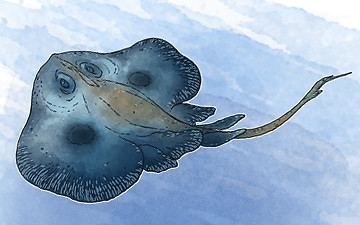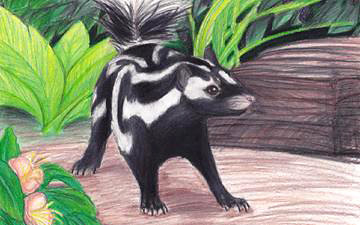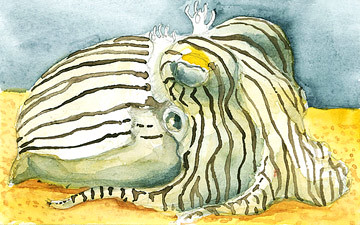Cards
(QUICK LINKS: Decks | plants | mammals | birds | | reptiles | fish | cephalopoda | insects | microbe | events
( scientist | project | modifier | technique |)

Influenza A
Virus subtype H1N1


6 POINTS
Play: Influenza A is a PARASITE of (any) Homo sapiens, Sus (swine) and duck cards.
Fact: In June 2009, the World Health Organization (WHO) declared the new strain of swine-origin H1N1 as a pandemic.

Atlantic Footballfish
Himantolophus groenlandicus


10 POINTS
Play: H. groenlandicus has a MOVE of 2 and can act as a PARASITE on other H. groenlandicus cards in play.
Fact: At maturity, the much smaller male becomes a parasite of the female

Blue Ray
Neoraja caerulea


10 POINTS
• Neoraja caerulea has a MOVE of 2.

Paper Birch
Betula papyrifera


5 POINTS • Betula papyrifera has a SPREAD of 1 (requires WIND). The relatively soft, whitish wood is used extensively for such items as clothespins, spools, ice cream sticks, and toothpicks.

Eastern Spotted Skunk
Spilogale putorius


6 POINTS
• Spilogale putorius has a MOVE of 2.
The spotted skunk is not actually “spotted” in the traditional sense. Its dorsal stripes are broken in appearance which gives it its spotted moniker.

Striped Pyjama Squid
Sepioloidea lineolata


10 POINTS
• Sepioloidea lineolata has a MOVE of 2.
Sepioloidea lineolata is one of the few cephalopods that are known to be poisonous.